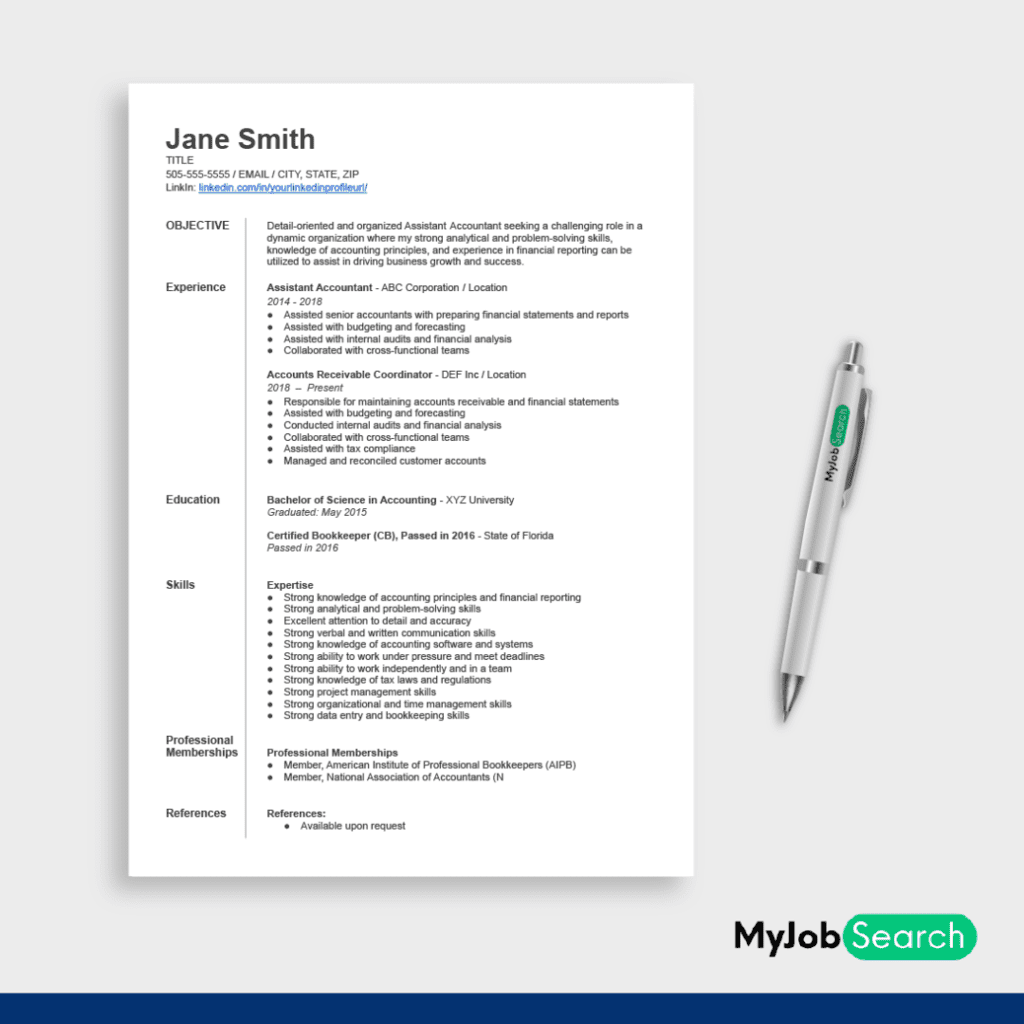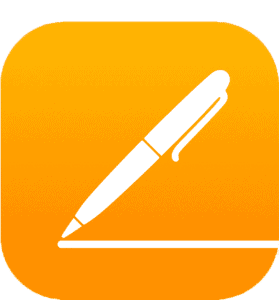Crafting a targeted, effective resume is a struggle. It seems impossible to describe everything you offer on a single sheet of paper, reduced to bullet points and cliched resume verbs like “oversaw” and “led.”
You’re not alone in your frustration, especially considering that most recruiters spend, on average, 7.4 seconds looking at a resume before moving on to the next one.
So, what can you do to stand out from other applicants as the best choice for the position?
With the right combination of resume buzzwords, you can build a dynamic profile of your professional experience.
What Are Resume Buzzwords?
Resume buzzwords serve as eye-catching, targeted attention grabbers that recruiters most desire when hiring for a role.
Often, they’re industry-specific skills, jargon, and abbreviations that qualify you for the position.
However, you can also spice up your resume with powerful action verbs, examples of industry expertise, and much-desired soft skills.
Why is it Important to Avoid Resume Cliches and Buzzwords?
Resume cliches are those words that have become so overused that they no longer pop on the page.
If you stuff your resume with non-specific cliches and buzzwords, your application looks like everyone else’s. It also takes up real estate on the page without adding any significant value.
Examples of Resume Buzzwords
Using more specific resume skill buzzwords or changing resume cliches into relevant buzzwords, you can transform a ho-hum application into a highly-targeted job offer magnet.
Resume Skill Buzzwords:
These buzzwords consist of hard and soft skills that empower you to take on a position successfully.
Hard skills are industry- or role-specific abilities that require technical knowledge.
For example, someone in sales might use words like “social selling” or “buying signal,” while those applying for a marketing position would use “omnichannel” or “customer personas.”
Soft skills are interpersonal abilities that describe how you interact with others.
Use an even spread of hard and soft skills to showcase that you have the practical knowledge to get the job done and the professional graces to integrate successfully with the team.
- Data Analysis: Data drives results, so the ability to extract trends successfully and turn them into solutions is invaluable.
- Project Management: Show recruiters you are organized, efficient, and communicative.
- Negotiation: Good negotiators are willing to compromise and have keen verbal abilities.
- Proactive: Those who can see problems before they happen and offer solutions are highly-valued assets.
- Copywriting: Copywriting is the foundation of many business processes, from internal communications to client pitches.
- Multilingual: In an increasingly global world, the ability to speak multiple languages is a rare and treasured accomplishment.
- Graphic Design: With digital marketing at the forefront of many businesses’ minds, graphic design training can open professional doors.
Resume Cliches and Buzzwords
The general idea behind resume cliches and buzzwords is good in theory. They attempt to summarize a lot of information about your abilities into just a few words, ensuring that you don’t overwhelm recruiters with “walls” of text.
However, their usefulness ends there if you don’t take the time to tweak your wording to be more specific to your professional accomplishments.
- Instead of “experienced,” use “Veteran of the customer service field.”
- Instead of “leader,” say, “Mentored a team of 12 salespeople with 45% customer acquisition.”
- Instead of “strategic,” try “Pioneered a new digital marketing protocol.”
What Buzzwords Should I Avoid on My Resume
The problem with resume cliches is that they’re too broad. They tend to tell the recruiter what you can do rather than show them what you’ve accomplished.
Here are ten examples:
- Experienced: Hiring managers and recruiters need to know your specific experience in the industry, a role fulfilled by your list of previous workplaces.
- Expert: Anyone can call themselves an expert, but adding evidence – such as course studies or certifications– proves whether it’s true.
- Skilled: “Skilled” is far too general a word to describe what you’re capable of.
- Detail-Oriented: Rather than explicitly stating that you’re detail-oriented, use your resume to demonstrate you have impeccable proofreading skills.
- Team Player: Team players are comfortable going with the flow, while collaborative applicants actively engage in the project and bring new ideas to the table.
- Self-Motivated: Recruiters assume that their applicants are self-motivated. Otherwise, they wouldn’t have taken the time to complete the application process.
- Go-Getter: If you want to seem like a go-getter, offer a concrete example where you voluntarily challenged yourself to grow professionally.
- Perfectionist: Contrary to popular belief, perfectionism is usually a hindrance rather than a positive trait, as they tend to be rigid and poor collaborators.
- Results-Driven: You can back up your claim that you’re results-driven by providing numeral proof in the form of quota or KPI records.
- On-Time: Saying you’re on time is similar to saying you’ll always follow the dress code. It’s an expectation, not an option.
What Are Good Words for a Resume?

Words to Use Instead of Cliches
By using less common synonyms for resume cliches, you can avoid depending on buzzwords other applicants are likely using.
- Use “facilitated” instead of “led.”
- Use “surpassed” instead of “achieved.”
- Use “developed” instead of “worked on.”
- Use “investigated” instead of “researched.”
- Use “adopted” instead of “used.”
Resume Action Words
Action words are verbs that describe the particular manner in which you engaged with your work. By implementing unique action words, you give more context to your professional experiences.
- Delegating implies that you successfully divided a project and oversaw its completion.
- Pioneered more aptly describes innovative, self-motivated applicants.
- Enhanced means you improved a pre-existing process to increase efficiency or usability.
- Transformed offers an opportunity to provide quantitative data to illustrate growth.
Resume Power Words
Because many recruiters use digital tags to quickly sift through applicants, using resume power words increases your chances of making the cut.
Use the company website and position description to pick the words they emphasize the most.
- Marketers can use jargon like SERP, SSM, and ROI.
- For a company that values flexible work schedules, describe yourself as adaptable, compromise-seeking, or resilient.
- Search the job posting for the specific skills they’re looking for, such as public speaking, coding, accounting, or networking.
- Mention your competence with tools and software, including Google Suite, Excel, Photoshop, or welding machines.
Self-Descriptive Words for Resume
Skip the cliches and get creative with your resume adjectives.
- Decisiveness is a must-have trait for leaders.
- Purposeful implies that you are efficient and focused.
- Harmonious applicants are likely to do better in collaborative workplace cultures.
- Diplomatic reassures employers that you are willing to step in to resolve minor conflicts amongst the team.
- Orderly helps your employer see you as organized and even-tempered.
Frequently Asked Questions
Here are some common questions regarding resume buzzwords.
Is there a resume buzzword checker?
There are several resume buzzword checkers, including online platforms such as Jobscan or Enhancv. These services compare your resume to common resume tags that employers use to sort and organize their applications.
How can I make my resume more attractive?
To make your resume more attractive, use a clean format with plenty of white space. Organize your information under headings and utilize bullet points.
When possible, you should use quantitative data rather than qualitative, as numbers are easier to process at a glance than words.
Wrapping Up
By thinking creatively about resume buzzwords, you can communicate a strong, clear message of the value you’d bring to a team without adding unnecessary bulk to the text.
Avoid cliches in favor of rich, descriptive language that rises above the mess of overused buzzwords to get the most impact from every word. Otherwise, you risk recruiters passing you over in favor of someone who offers more precise insights about their abilities.
If you have any questions about resume buzzwords, leave a comment below!








